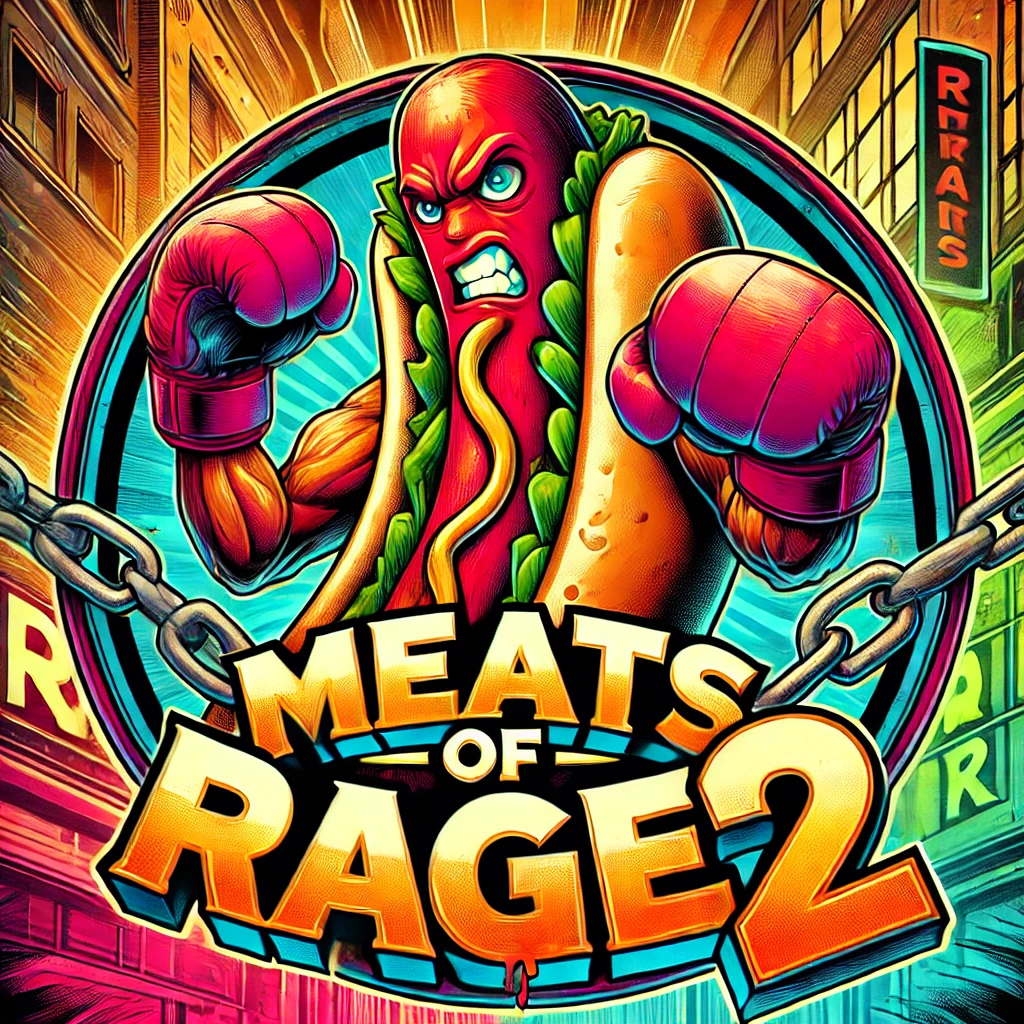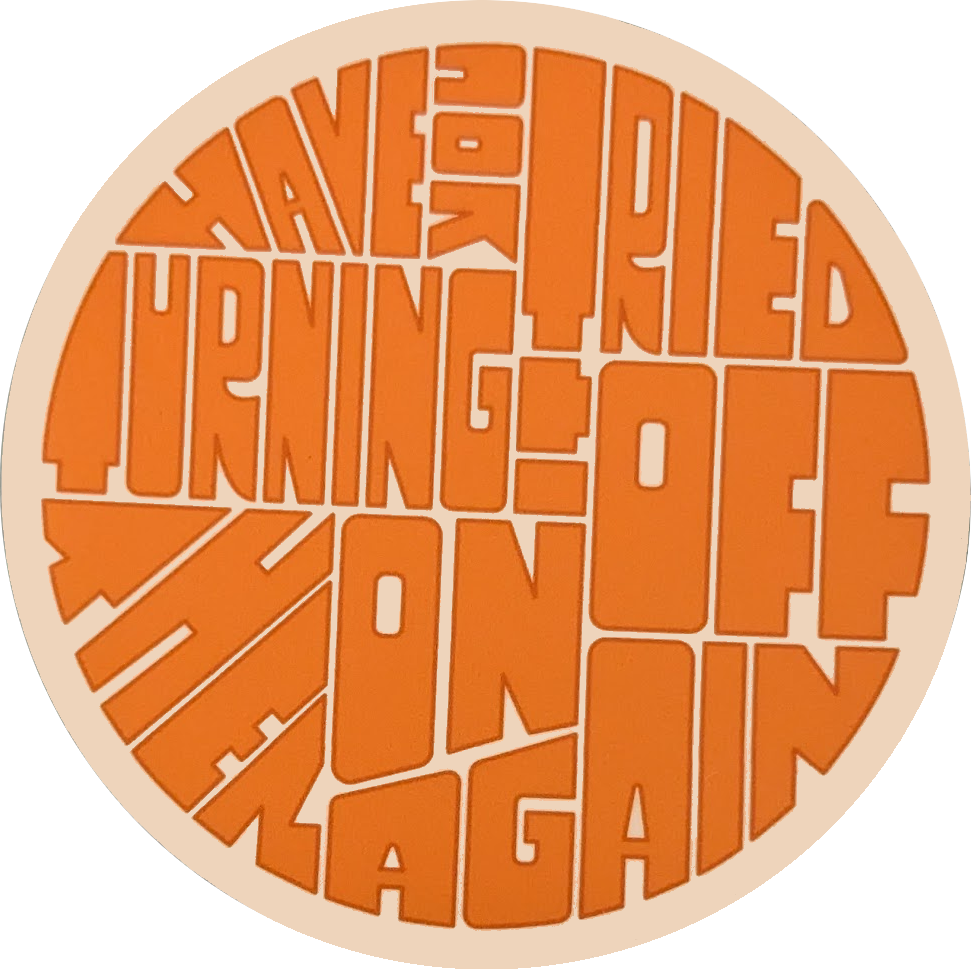A lot of people threaten to leave Twitter. Not many of them have actually done it.
This was true even before Elon Musk’s purchase of the platform a year ago. But the parade of calamities since — cutting back on moderation, unplugging servers, reinstating banned accounts, replacing verified check marks with paid subscription badges, throttling access to news sites, blaming the Anti-Defamation League for a decline in advertising — has made stepping away more appealing, either because the timeline is toxic or because the site simply doesn’t function the way it used to.
Last April, the company gave NPR a reason to quit — it labeled the network “U.S. state-affiliated media,” a designation that was at odds with Twitter’s own definition of the term. NPR stopped posting from its account on April 4. A week later, it posted its last update — a series of tweets directing users to NPR’s newsletters, app, and other social media accounts. Many member stations across the country, including KUOW in Seattle, LAist in Los Angeles, and Minnesota Public Radio, followed suit.
Six months later, we can see that the effects of leaving Twitter have been negligible. A memo circulated to NPR staff says traffic has dropped by only a single percentage point as a result of leaving Twitter, now officially renamed X, though traffic from the platform was small already and accounted for just under two percent of traffic before the posting stopped. (NPR declined an interview request but shared the memo and other information). While NPR’s main account had 8.7 million followers and the politics account had just under three million, “the platform’s algorithm updates made it increasingly challenging to reach active users; you often saw a near-immediate drop-off in engagement after tweeting and users rarely left the platform,” the memo says.
There’s one view of these numbers that confirms what many of us in news have long suspected — that Twitter wasn’t worth the effort, at least in terms of traffic. “It made up so little of our web traffic, such a marginal amount,” says Gabe Rosenberg, audience editor for KCUR in Kansas City, which stopped posting to Twitter at the same time as NPR. But Twitter wasn’t just about clicks. Posting was table stakes for building reputation and credibility, either as a news outlet or as an individual journalist. To be on Twitter was to be part of a conversation, and that conversation could inform stories or supply sources. During protests, especially, Twitter was an indispensable tool for following organizers and on-the-ground developments, as well as for communicating to the wider public. This kind of connection is hard to give up, but it’s not impossible to replace.
The week after NPR and KCUR left Twitter, the Ralph Yarl shooting happened in Kansas City. Rosenberg says it was “painful” to stay off Twitter as the story unfolded. “We had just taken away one of our big avenues for getting out information, especially in a breaking news situation — a shooting, one that deals with a lot of really thorny issues of racism and police and the justice system. And a lot of that conversation was happening on Twitter,” Rosenberg says. Instead of rejoining Twitter, KCUR set up a live blog and focused on posting to other social networks. NPR’s editors worked with the station to refine SEO and help spread the story. Even though the station itself wasn’t posting to Twitter, Rosenberg says the story found an audience anyway because very engaged local Twitter users shared the piece with their networks. And while the station informed these users through its website, it also reached new users on Instagram, where Rosenberg says KCUR has “tripled down” its engagement efforts.
On Instagram, KCUR’s strategy is less about driving clicks and more about sharing information within the app. “Instagram doesn’t drive traffic, but frankly neither did Twitter,” Rosenberg says. NPR, meanwhile, has been experimenting with Threads, a new app built by Instagram that launched in July, where NPR is among the most-followed news accounts. Threads delivers about 63,000 site visits a week — about 39 percent of what Twitter provided. But NPR’s memo notes that clicks aren’t necessarily the priority, and the network is “taking advantage of the expanded character limit to deliver news natively on-platform to grow audiences — with enough information for a reader to choose whether to click through.”
NPR posts less to Threads than it did to Twitter, and the team spends about half as much time on the new platform as it did on the old. Danielle Nett, an editor with NPR’s engagement team, writes in the staff memo that spending less time on Twitter has helped with staff burnout. “That’s both due to the lower manual lift — and because the audience on Threads is seemingly more welcoming to publishers than on platforms like Twitter and Reddit, where snark and contrarianism reign,” Nett writes.
These strategies move publishers further away from seeing social media as a source of clicks. This could be a risky pivot away from traffic sources, given that NPR and many member stations have laid off staff or made other cuts due to declining revenues. But the social media clickthrough audience has never been guaranteed; a Facebook algorithm change this year also tanked traffic to news sites. Instead, recognizing that social media is not a key to clicks seems like a correction to years of chasing traffic through outside platforms.
There were signs of social media’s waning importance before the Twitter sale as well as predictions that the era of social media-driven news is coming to an end. But changes to X in the last year have only accelerated these trends, underlining that social media is less rewarding to publishers and less fun for users than it used to be. “The quality of our engagement on the platform was also suffering” before April, Nett wrote in a followup email. “We were on average seeing fewer impressions and smaller reach on our tweets, despite keeping a similar publishing cadence. And I know this is anecdotal, but as someone looking at the account every day, spam replies were getting much more frequent — starting to overpower meaningful feedback and conversation from audiences.” Musk’s now-retracted relabeling of NPR could be seen as a last straw, or as an open door to leave a platform that had lost its utility.
By many estimates, active daily users on Twitter/X are in decline. Not everyone who leaves does it like NPR, in a flurry of headlines and with a final post pinned to their timeline. Instead, it’s more mundane. They check less and less often, finding it less useful, less compelling. It’s not easy to decide to back away; there’s still a fear about leaving — a fear of missing out on a great conversation or a new joke. But as a platform becomes less reliable — either editorially or technically — staying becomes more fraught. And as NPR has demonstrated, you may not be giving up all that much if you walk away.
I cannot understand why news organizations and large companies wouldn’t want to run official communication through Mastodon. I understand the network effect but allowing your employees to create a Twitter account is a bit like letting them officially do business with their personal AOL email account. I don’t think Mastodon is even close to perfect but it gives the publisher a huge amount of control.
I don’t understand why they can’t jusy write on their website or publish an email newsletter or RSS feed. Why do we need anything like Twitter for organizations?
NPR does maintain a number of good RSS feeds ( https://feeds.npr.org/ ), which are being simulcasted onto Mastodon by press.coop. They are doing this for a ton of news organizations: https://press.coop/directory
It doesn’t work well though, it posts week old stories quite often and posts a lot of posts all at once.
Cause people actually use twitter.
No they don’t.
Yuh-huh.
Oh yeah? Then name 76.
Bob, Steve, Jeffany, Susan’t, and Angies 1-72.
Ah damn, I guess you got me!
NPR does that, actually. Their newsletters are the only ones in my inbox that I actually read.
Because people want to interact with it, leave a comment. It’s not nearly as satisfying to yell at cloud, it is as effective tho.
…And they can capitalize on that interaction.
Fundamentally microblogs are different than all of those things. RSS is too nerdy for regularly people, who are already struggling just with the idea that they have to pick a server on mastodon, and RSS readers are not at all designed for short-form content like it. Email newsletters are roughly the same, and I really don’t want every tweet in the form of an email, that would get real, real annoying. Then you toss in that both are one-way communications. And finally, you have to go seeking all of those things in a significantly different way than when you than just saying “I’ll search twitter for GE, I’ll bet I’ll find them there, and they’re going to likely be more responsive than any other channel because it’s all in public.”
Generally speaking, I really hope that outfits like NPR and the brands and such don’t all just go to Threads and instead choose to really own their identity and self-host on federated services.
I guess I’ve just never seen any value in microblogs at all, which probably explains my confusion lol. I don’t want a 160 character post from NPR about anything.
I agree with you about self hosting, I just don’t actually see for something like NPR what federated services do for them. They’re already the central source of what they want to publish. They have a website. Why complicate things? While I like an ad-free experience of Lemmy etc - I just don’t get what NPR would get beyond having a comments section (discus?) on their news or opinion stories.
The best I can see is that it’s essentially ads for NPR, but then it both seems to me like … well … buy ads, and kind of a sleazy thing to throw up stuff onto Mastodon in the hopes - what? People learn that NPR exists? Product placement into the fediverse?
Because providing a central location for people to communicate about things via an information exchange system is clearly what people want. The issue is that it isn’t held up and maintained by society at large but by private interests. Stuff like mastadon have a chance at changing this, but we’ll see
Correction; it’s what some people want. Most people pay very little attention to Twitter, X or Mastodon. These systems are very much about providing a way for media and tech elite to talk to each other.
I’m sorry but no. Nearly the entire English speaking world was using twitter at one point. Just because you don’t like it doesn’t mean it’s not what people want
A few journos actually have moved to mastodon and it’s been a huge boon for them. They even get their own tab specifically for news.
I used to get my daily news from Mastodon but it only features like 7 stories. I wish they’d give that feature some more love.
They can’t admit that there’s something other than for profit ventures which are functional
I can’t help but wonder if most other news organizations’ corporate owners wouldn’t want to legitimize the fediverse in anyway. It might loosen their deathgrip on the internet .
I absolutely get you; you’d think companies would want this. However employees probably shouldn’t want this. It’s generally probably better for them that they work for their own brand when possible, so I’m hesitant to suggest this become a thing.
The business of the newspaper is to publish news. The problem is that XTwitter is not a news publishing platform and their recent changes make it almost impossible to figure out what is real or not. So many posts are made to look like news releases but there is not one bit of parody in them. If someone wants to have their own private account, fine, but their official work ought to not be interfered with by trolls and people with a malicious agenda.
I’m not arguing that Twitter is a good platform; I left it back in November for Mastodon and I’ve been happy with the switch. And if publishers want to run accounts labeled as “articles by Person A” and “articles on Topic B”, (to essentially make them user-friends feeds, instead of asking newbies to learn how to add RSS,) I think that’s great!
I’m just saying if a journalist (or any creator really,) is going to be active on social media, that it’s worth to work for the best interest as much as possible. Cultivating their circle on a neutral (between them and their publisher) platform is better for them than working exclusively on a platform owned by their publisher, locking in everything they do socially there. Be that Mastodon, IG, or whatever fits them and their style.
wouldn’t want to run official communication through Mastodon.
It’s a culture thing.
-
People cannot think for themselves.
-
People are skeptical of open technologies.
-
Businesses tend to support passing around money with other businesses. It’s in all of their best interests that people aren’t even exposed to free alternatives.
-
Be careful what you wish for.
Corporations want to control every aspect of their image and maximize profit. Were they to move to Mastodon there are going to be consequences that could reshape how Mastodon and the Fediverse operate. Maybe there would still be independent instances, but profitability could drive corporate instances that would greatly overshadow private ones and/or even change the way the whole thing works so it’s much more difficult or expensive to be part of the system. That’s what corporations do - control the system, maximize profits by charging to participate in as many aspects of their system as possible, buy up competitors and if that doesn’t work they crush them.
What are you even talking about?
A companies instance is used for two things. Having employee accounts associated with them officially and for making their own posts.
If they make spam they just get defederated. They have no power.
A corporate ran open instance is not what they are talking about.
Threads? Seriously? Have they learnt nothing?
I mean, it’s better than Twitter in the one key aspect they care about: it is run by someone who is somewhat reliable. Sure, we can rely on Zuck to be a data-hoarding, privacy-invading fuck, but he can also be relied on to not insert his personal beliefs too deeply into his products.
They should join mastodon like BBC did
Ah, but unlike NPR the BBC didn’t switch wholesale to Mastodon. They created a Mastodon server in addition to their traditional social media accounts.
Actually building infra is a larger commitment.
True, but having that alongside their traditional social media alleviates the risk of not having effective social media should Mastodon, Lemmy or other Fediverse instances not pan out.
Just be careful w your wording, before “instance” loses its specific meaning in the fediverse.
deleted by creator
I’m a n00b here, but it’s livelier than I expected.
It’s not as lively as Reddit, though I’m pretty sure we’ll get there.
This is Lemmy, mastodon is much more popular than lemmy.
“Sir, this is a lemmy instance.” 😛
deleted by creator
It’s an experience. They said they would review it after 6 months.
https://www.wired.com/2016/11/facebook-won-trump-election-not-just-fake-news/
The problem with social media as an industry is not that they lack reliability. It’s that they make money out of fucking things up. I think the amount of which Threads is better than Twitter is a rounding error.
I mean, yes, but NPR’s problem specifically with Elon’s Twitter is that, rather than miscreants using social media as a tool to get this done, Elon is doing it himself to the social media he owns using every disposable method. Zuck, at the very worst, at least takes an invisible hand approach and does his stuff much less on a whim.
NPR would be an ideal subject to do self-hosted federated platforms. They’d have total control of moderating in their own communities, but people could access the content from elsewhere. And it sort of lends itself to the idea of public information and discourse.
However, Mastodon and Lemmy do not have the reach they desire. Too bad. Nothing we can do except grow these platforms and hope that it takes, enough to attract the attention of the likes of NPR.
Mastodon and Lemmy don’t have a great reach so entities like NPR don’t contribute, and entities like NPR don’t contribute, so these platforms won’t have as great of a reach.
At a certain point, “Doing the right thing” should become an important factor.
I wouldn’t trust NPR to moderate a kindergarten let alone a social media website after the amount of proven misinformation they published during covid.
Meow
We can say the same about Reddit too. Less and less use, same way as Digg and slowly it will fade into unimportance.
I had the classic power mad mod taking their bad day out on me moment a week or so ago and basically haven’t been back.
That’s been happening with power-tripping mods here on Lemmy, it’s not just a Reddit issue.
Modlogs are public and I haven’t seen much outright abuse, and what little questionable stuff are low level actions like removals.
On reddit you can get hundreds of your comments silently removed or just get outright banned if the moderators politics clash with yours. Almost every single one of my perm bans have been zero-warning for stupid shit, like using nazi as a pejorative or calling a racist cracker.
Regardless the stakes are extremely low since you can just make a new account on a different instance, which you don’t even need to do 90% of the time because bans here are actually sane lengths and for good reason, not just outright perms over minor infractions.
My other account actually was shadowbanned, here on Lemmy, on one of the biggest Lemmy servers. I just checked. No new comments or posts I’ve made in the past few days are visible.
This has been happening ever since a rando from lemmy.ml got so angry with me in a post of my own creation he used an alt account to try to gang up on me.
Where he was talking to himself.
And when I posted proof he was using alts, poof, I was shadowbanned. No new posts or comments I made in that instance have been visible anywhere else since.
If that is not proof that this is just a symptom of the human condition and not isolated to any one website, I don’t know what is.
We both know banning is ceremonial at best – this right here is an extra account I had but forgot about, and it came in damn handy – but the fact that other people would even try or work together collectively to get rid of someone they don’t like bothers me. That bothers me. Since they apparently will ban people just for pissing them off, that means no server is really safe unless you own it. Even then, it can just get defederated for stupid reasons.
That’s to say nothing of when a lemmy.world mod banned my old account for three days because I pointed out a bug that was still present on the site. I’ll dig through the modlogs and screenshot the timestamps if you’re interested. 🤦
Nah i’m not a debate pervert, i’ll just take your word on it.
Yeah, that’s exactly why spez tried to pin the fallout of the API change on mods: they were already very unpopular in general on Reddit.
That said, the mod log does seem to be helping. Personally, I’ve only used it so far to determine someone who was complaining about their post being deleted that their post wasn’t as innocent as they made it seem.
But guaranteed that either now or in the future, there will be mods who only wanted the position to abuse the power, ones who didn’t plan on abusing the power but end up doing it anyways, ones who make and enforce ridiculous rules, coups, failed coups, corruption, and all the other problems that go along with putting people in positions of power. The only question is how admins of that instance and others deal with it.
In Digg’s case it was waning until v5 when it fully collapsed under the weight of ineptitude.
Yea Digg and Reddit aren’t really comparable for a number of reasons. Digg changed their entire website overnight into something that was fundamentally different to what it was. Reddit on the other hand looks and feels pretty much the same as it has for years. Anecdotally, most people I know in my life who use Reddit aren’t even aware of anything going on.
Additionally Reddit has something that Digg was never able to achieve, a huge presence over Google search results. Even if Reddit locked down completely today like some kind of read-only site it would still continue to get a ton of traffic for this reason alone.
Losing reddit archived content would have disastrous content on internet. It is one of the last trustworthy source of opinios/information left on the internet. Everything else feels autogenerated and fakewould have disastrous content on internet. It is one of the last trustworthy source of opinios/information left on the internet. Everything else feels autogenerated and fake.
I agree that it was one of the last trustworthy sources - but with the verifiable reports of posts being edited/deleted/undeleted before/during/after the whole 3rd party app debacle, and the pushshift.io ban that prevents checking to see what was originally posted (pushshift was banned in May '23) - I don’t trust it anymore, and actively try to avoid it for all but independently verifiable technical stuff. It’s made things more difficult, I used to count on it as a source but now I barely trust it as a starting point.
Reddit’s been screwing up so much that I had to look twice at this post. XD
You people keep talking about Twitter as if it wasn’t just a media industry circlejerk.
Twitter has been an advertising platform first, social network second for a very long time now.
Twitter in the early days: Losers jerking off to celebrities
Twitter around the mid of its life: Liberals and war criminals
Twitter near the end of its life: Communism and furry porn
Twitter after Cracker Musk took over: Pedophiles and Nazis
Fortunately the furry porn seems to have found a home on Mastodon!
Your definition of “early days” for twitter isn’t nearly early enough, because it started out as an SMS repeater. Hashtags, images, and celebrities didn’t come for a long, LONG time.
Either way, it’s been pedophiles and nazis since way before Musk. He just perfected the art. Real scumbag stuff.
Yeah, I don’t see what value X has for the average user.
Like, for each idiot Musk replies to, there are literally millions he ignores. But they’re all hoping to be that one, lol.
Rubes.
No, I mean before that. Like, its whole thing was “this is where the famous people make wisecracks”.
There was a time in which Twitter was an incredible resource, just by being the sort of place that subject-matter experts like law profs and history profs would weigh in on relevant political claims, in nearly-real-time. Sure, you had to wade through a nightmare farm of trolls and porn to get there, but once I figured out how to curate my feed well enough it was a quick way to get the benefit of actual expert takes.
TBH I suspect destroying that was among the reasons for taking over twitter
Are they on Mastodon?
deleted by creator
I meant officially/directly.
I know there’s a third party bot that scrapes their website and posts on Mastodon.
deleted by creator
Actually I had searched on the hashtag #NPR and the account that you listed in your reply had not come up, but some other account instead, so that’s why I mentioned it was a third party bot.
Thank you for supplying the account you did, that doesn’t seem to be third party.
Maybe breaking away from the hive mind and eating fewer tide pods would be good for the public.
Turns out the whole tide pod thing was complete fiction, and elderly people are the ones eating them a majority of the time according to poison control data. Go figure. Bored middle-aged people on TV trying to tell everyone what idiots the youngs are these days.
“Complete fiction” is a bit of a stretch, but it was grossly exaggerated how many kids ate the danger candy.
Apparently Tide’s marketing team went through many iterations on the pods, and they intentionally made them look like enticing treats. Probably not the smartest on their part either.
No, I’m pretty sure complete fiction is exactly what it was. Again, confused elderly people vastly outnumbered every other group of people that were eating Tide pods. Meanwhile, every news outlet was talking about it as though it was some epidemic sweeping the world. It was bullshit, sensationalization to get people to click.
So you’re admitting that people were eating tide pods, which makes it not, as you would say, “complete fiction”.
Elderly people, yes. Like I said initially. Swing and a miss.
I just began using Firefish and reading news that way. Federated news microblogging is a great way to read it.
How is that different than Mastadon?
It’s a much better designed app than Mastodon IMO, and you can read all of Mastodon from it, it’s just a really nice platform. It’s simply my preference and a better user experience.
How long you have been using it ?
About two months. I find it excellent and interesting!
It’s a fedi client in the same way that Mastodon is, but as an app it’s better in a lot of ways.
Most Mastodon instances limit you to 500 characters in a post, on firefish the default seems to be 10k chars. I like the support for threaded viewing of replies, the authoring tools are just a bit richer, and a lot of things that don’t need to be done in a whole-separate page are instead done in a modal dialog. All in all, it’s a thoughtfully-derived app that (imo) improves on Mastodon in a lot of ways.
Recruiting software?
My search results were showing Firefish th CRM/Recruiting software as well (used DDG).
Seems like the devs might want to consider changing the project name or work on SEO.
Edit: changed my search to “Firefish Open Source” and it produced results related to OPs comment.
No, it’s a great Twitter clone .
I started following them on Instagram once they dropped of X
I’m Canadian and that see you next Tuesday Zuck has blocked all news to us on his platforms. I tried to post a NYT recipe link the other day and that was blocked.
So I started using Firefish and only reading it in the fediverse. Amazing.
Sounds like Zuck actually did you and the rest of the country a favor. Getting news on social media is how we got this deep into the mess we’re in.
Maybe. But it annoys me I can’t post interesting non political articles which I did often.
I presume you know the specifics of why those blocks are in place? It’s because of a bill attempting to force them to pay for news posted there. You’d think the Canadians would have learned from the Aussies who tried similar, but no.
https://www.washingtonpost.com/world/2023/06/22/facebook-meta-canada-bill-c18/
Yes of course. I’m glad the government is standing up regardless of previous results.
Zuck banned news so he’s a cunt
your government did that
yes and that’s a good thing
???
Canada didn’t ban news, they set up some rules and FB didn’t want to follow them so they just pulled it completely.
Thats not really relevant to my confusion
I’m Canadian. Not that it matters much for this comment but feel compelled to say.
Regarding laws demanding fees, I think it’s actually a good idea. Most platforms built-up with the shallow ruse of serving user interests and business interests. Then once the audience became captured by (really a few only) tech monopolies, they slowly leveraged the users to suck as much blood, when that phase was over they started sucking the blood of businesses. Nothing is organic and it’s a huge money-con building wealth off those they once served, now pulled the rug out from.
The complete enshittification of the Internet is upon us. These awful blood-sucking tech monopolies have dropped the altruistic ruse and they are in full end-stage capitalism mode. They’ve commodified the users, they’ve taken their business partners hostage, and it’s one giant fuckaround used to build wealth for stockholders.
Hell… were on a platform right now discussing it, which in large part exists because the investors of Reddit are pulling this same shit.
I guess I’ll be leaving meta incompletely soon. My use of KISSLaunchers makes it easy for me to forget about social media.
Most people just read the link title and not click on it. Click per 1000 views on X Twitter is very very low.
Serious question: What’s wrong with NPR being labeled as “US-supported media”? Isn’t it funded by the US federal government?
I think their issue is that it misrepresents the magnitude of the funding. Less than 1% of their funding comes from the federal government
Is that so? I thought it was a more significant source. But isn’t it technically correct, though? I’m not American, but Wikipedia says it was established by the Public Broadcasting Act of 1967.
If they’re going to label NPR that way they should be consistent about it and label the other news platforms as billionaire supported media.
Labeling media with their significant owners and affiliations of board members would be a great thing. As long as it’d be uniformly applied… And as you’ve implied, that would certainly be unlikely to happen…
Yeah, they totally should, but this is Elon Musk we’re talking about, unfortunately :/
If a person buys a home in the US and they qualify for a government secured first time buyer’s loan at their local bank, would you say that person is living in government housing? They aren’t. Likewise, if a person starts a small business, gets a loan from their local bank that is secured by the US small business loans program, is that a government company? Of course not.
NPR is overwhelmingly supported by donations, trusts, advertising, etc. The government funding is more akin to a local art student getting tuition assistance or a grant of some kind. Which is pretty much the opposite of what Musk’s bullshit stunt was attempting to do- paint NPR as an arm of the government. Because all his idiotic new friends think that’s how it works and not one of them is curious enough to actually look it up.
Oh, I understand now, I’m not from the US so I just assumed that it was majority-funded. I’m just not sure why this would be a big deal even if NPR was government funded - I mean, it’s still better than a broadcaster owned by the media oligopoly, so who really cares?
Great point. Many governments have media teams that produce propaganda and present it as news. This can be confusing, so social media sites label articles from these government entities as state-sponsored or whatever. It’s supposed to help Americans not trust propaganda that another country puts out, uncritically.
The stigma of government affiliated news (here in the US at least) is that it makes the “news” a government mouthpiece. So there’s a distinction here between getting grant money from the government and effectively being the government.
In other countries, like Canada and UK for instance, government media such as CBC and BBC are operated very different to how NPR operates, and they’re careful to put up a barrier between the rest of the government and the news agency. We can question how effective that barrier is, but we could also question how US corporate media outlets might allow advertisers to modify stories too. But in any even, what Musk was trying to do was equate NPR to some of the notoriously government run news outlets in the world because he’s a liar and a dirtbag.
Labelling NPR as state-affiliated media is pretty based though
Yeah, based on stupidity and an alt-right political agenda
Their intents were foul but the action itself is pretty factual. It’s like with (s)expats just because you gave it a different name for white people doesn’t change the fact that they’re immigrants. Same deal here. American media absolutely should have gotten the tag from the get go.
But like come on we all know why they gave them the tag, it was purely for political reasons.
Are you like, really, really high, or what? I don’t know what a sexpat is but in any case I don’t see this comment making any sense whatsoever
Not supporting mainstream media = alt right now. Wow, I guess there is only one legit anti-establishment movement in the world. You are doing these people’s work for them.
No, using the term “mainstream media” has been code for “I am an extremist right winger” for years now
Does based mean deliberately false?
Based on misunderstanding what NPR actually is.
Shh You can’t say that here, this is a designated liberal propaganda zone. Mmm yes slava ukraini fellow libs!
Oh sick burn NPR now you have to find a new Democrat platform to shovel your state sponsored Democrat propaganda. Have fun with the website and newsletters.
NPR is, like, the center, to a fault lmao
Yeah when you’re an unabashed leftist it might look that way
And when you’re a fringe right wing goofball, reality might look leftist and woke lmao
Leftist programming for dumb commies like yourself. Only the have nots and leftist spew dumb shit like above.
If you’re making less than 100k a year, and you don’t have access daddy’s money, you’re also a “have not”. Labour is all the same, and it only benefits the elites to divide ourselves amongst each other.
NPR’s bias is toward the wealthy and educated class. It’s not a political bias at all. That said, there are NPR affiliates who do produce and air leftist programming, but that’s not the same as NPR itself. A lot of people are very confused about how public radio is structured, I think because public radio has not done a good job of explaining it to the public.
?
I think you misunderstood the article
I think you misunderstand a culture war. Another casualty
Wow looks like your generation only knows hate and blame
deleted by creator
NPR is state affiliated. I agree that twitter is a waste of time but Twitters actions weren’t off base
Elon isn’t going to notice you.
I’d hope not
How is it state affiliated?
Because Space Daddy said so
deleted by creator
NPR operates independently of any government or corporation, and has full control of its content.
deleted by creator
Twitter’s definition of state-affiliated:
How state-affiliated media accounts are defined
State-affiliated media is defined as outlets where the state exercises control over editorial content through financial resources, direct or indirect political pressures, and/or control over production and distribution. Accounts belonging to state-affiliated media entities, their editors-in-chief, and/or their prominent staff may be labeled. We will also add labels to posts that share links to state-affiliated media websites.
Conspiracy theories aside, AFAIK there’s no evidence that any level of the US government exercises control over NPR.
deleted by creator
That’s the problem for me. If they are receiving any state funding they need to report facts as unbiased as possible
Because they’re a non-profit, their tax forms are publicly available. These forms are called 990s. This is why many people are responding as though they’re very annoyed with your perspective, because the evidence is free and public by law.
Exactly, I’m not making stuff up
The thing is you’re equivocating something potentially dangerous that you could easily look up instead.
lol calling them biased
deleted by creator
lol lol lol fucking citation fucking needed mate
It was founded by Congress but is independent and funds itself. You know this but spread misinformation anyway.
deleted by creator
No one is trying to hide that NPR gets grant funding. However, you are part of a group of people who intentionally misrepresent what that means for the sake of propaganda.
deleted by creator
We were talking about NPR and now we’re on Higher Ed for some reason?
Removed by mod
These are individual grants. Your tax dollars aren’t being specifically earmarked for this. You know this but continue to spread misinformation. Might I suggest that you…you know…get a life and stop lying to everyone?
“Established by an act” doesn’t mean the same thing as “maintained by Congress.” If your argument were true, NPR wouldn’t be able to operate during government shutdowns, since they’d be federal employees. Given they reported during previous shutdowns, that indicates to me that they’re not run by Congress.
deleted by creator
I’m normally nice but perceive you as insincere.
Did your second grade teacher not go over what context is with you?
deleted by creator
We think you’re dumb, not mysterious lol.
Exactly. You should have said it so others don’t have to point it out.
How state-affiliated media accounts are defined on Twitter.
State-affiliated media is defined as outlets where the state exercises control over editorial content through financial resources, direct or indirect political pressures, and/or control over production and distribution. Accounts belonging to state-affiliated media entities, their editors-in-chief, and/or their prominent staff may be labeled. We will also add labels to posts that share links to state-affiliated media websites.
https://help.twitter.com/en/rules-and-policies/government-media-labels
In case you don’t know, you’re trying to use logic against someone who didn’t use logic to get his wrong opinion.
yeah but two unlogics make a logic.
Kinda make sense to me…
Literally less than 1% of revenue comes from government grants, but it’s “state affiliated.” By that reasoning a whole host of things are state affiliated.
I bet Starlink & SpaceX are more “state affiliated” than NPR?
I think you’re right… Doesn’t SpaceX get a bunch of US government money? I just watched an Ordinary Things video on how much space rubbish there is and spacex is like… the main contributor.
Edit; I could be wrong but I think he mentioned the gubment gives spaceseX money
Probably based on the tax dodging that huge corporations do, X should classify itself as state affiliated, because we taxpayers are essentially subsidizing companies like that.
deleted by creator
1% revenue support from Government is “state affiliated”? In that case every single media outlet is state affiliated by virtue of their tax breaks.
And every single Danish media outlet would be “state affiliated” due to the state media fund.
Tax breaks don’t count
Okay, then every American who gets grants, welfare, or discounted education. Funding is funding. If you think 1% equals communism, or crushes integrity, there is no hope for you.
… because of reasons
If NPR wasn’t affiliated with the government they would be willing to stop receiving funding.
Reject and return all tax breaks, deductions or rebates - or you are affiliated with them and thus are impossible to trust. Oh, and return the government money you accepted for public secondary education. You government shill!
What percentage of Twitter is owned by Saudi arabia?
Well that is just flat out wrong and totally ignorant of the facts.
NPR is not state affiliated. They were created by a Congressional charter yes but so were the Boy Scouts and the American Red Cross and they aren’t state owned or affiliated.
You’re just straight up wrong my man. Factually. You have the facts wrong. Whatever you believe here that you think makes you right, is in fact, 100%, provably, wrong. As others replying to you have pointed out and used references.
The most “ACKSHUALLY” take, lmao.
Hey you know what, if you pay taxes, you’re state affiliated.
Similarly, all individuals who receive government benefits are clearly state affiliated.
Thankfully, someone else has already shared and sourced twitters working definition of “state affiliated”, and we can see that NPR clearly doesn’t fall under that. Looking forward to seeing your response to that comment.
[citation needed]
deleted by creator
westernjournal(dot)com is not a credible source.
https://mediabiasfactcheck.com/western-journalism/
QUESTIONABLE SOURCE
A questionable source exhibits one or more of the following: extreme bias, consistent promotion of propaganda/conspiracies, poor or no sourcing to credible information, a complete lack of transparency, and/or is fake news. Fake News is the deliberate attempt to publish hoaxes and/or disinformation for profit or influence (Learn More). Sources listed in the Questionable Category may be untrustworthy and should be fact-checked on a per-article basis. Please note sources on this list are not considered fake news unless specifically written in the reasoning section for that source. See all Questionable sources.
Overall, we rate Western Journal Right Biased and Questionable based on story selection and editorial opinions that strongly favor the right and numerous failed fact checks.
Questionable Reasoning: Far Right, Failed Fact Checks, Propaganda, Conspiracy
Bias Rating: FAR RIGHT
Factual Reporting: MIXED
Country: USA
Press Freedom Rank: MOSTLY FREE
Media Type: Website
Traffic/Popularity: High Traffic
MBFC Credibility Rating: LOW CREDIBILITYAnalysis / Bias
The Western Journal is a news and opinion website with a story selection that always favors the right and is negative toward the left. There is the frequent use of moderately loaded language in headlines such as this: The Clinton State Department’s Major Security Breach That Everyone Is Ignoring. The Western Journal typically sources its information from credible media outlets, though story selection and wording usually spin information favorably to the right. They have also failed several fact checks.
Finally, during the 2020 Presidential election, they have promoted misinformation. They also consistently promote misinformation regarding Covid-19 and vaccines. See failed fact check below.
mediabiasfactcheck.com is not a credible source
I’ve seen it many times over the years and they always seem to have done their homework. Why do you want to believe it’s not credible?
Why do you want to believe it’s not credible?
You answered your own question with that phrasing. They don’t have any evidence, if they did they would’ve posted it already, they just want to believe it isn’t.
They’re generally good at sniffing out right wing sources. Where they fuck up is with leftist media because they use a flawed political model that conflates communism and liberalism even though they’re dialectically opposed ideolgies. That same model also conflates conservatism and fascism (not too far from the truth) which is why they’re far more accurate at identifying center->right sources.
Edit your original comment here at the top level to say that although you think they can be called state affiliated, that npr is not under the control of any governmental party.
If you won’t do that, all the bullshit you wrote in the replies is just as hollow as it seems and you’re proven just a right wing troll and no one should ever believe anything you write.
deleted by creator
Did you forget you’re on your alt? My reply was clearly on another user’s comment.
deleted by creator





























